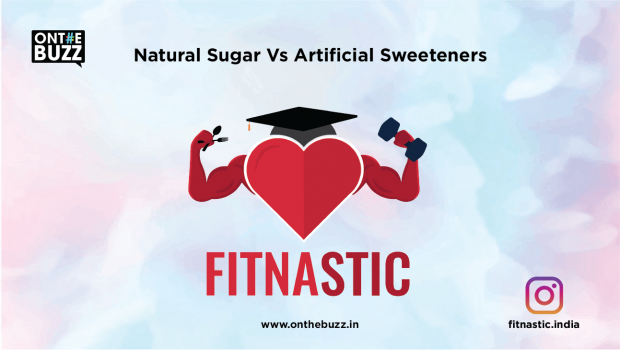If we like nature, then why choose artificial products?
Is sugar a dietary weakness for you? Many people crave it and have a sweet tooth, but even though you don’t, it is very hard to exclude sugar from our daily food intake! It is present in almost everything, from desserts, homemade preparations, festivity recipes, to almost every processed food item.
However, sugar is not always bad! What’s not good for your health is refined sugar that has proven to be a causative factor for diabetes, certain types of cancer, obesity, heart conditions, and poor cognitive functions in some cases. Living healthy does not mean that you let go of sweets completely, it only means that you replace refined sugar with some natural sweeteners, not artificial sweeteners.
Natural sugar Alternatives:
JAGGERY– It is an unrefined sugar product made in Asia and Africa. It is sometimes also referred to as a non-centrifugal sugar.
- Use as a sugar substitute in baking.
- Sweeten drinks like tea and coffee
- Sweeten your life all the time.
HONEY– Honey is a sweet, viscous food substance made by honey bees and some related insects. Bees produce honey from the sugary secretions of plants or from secretions of other insects, by regurgitation, enzymatic activity, and water evaporation.
Health benefits of honey-
- Improved immune function
- Treats flu-like symptoms
- Prevents constipation
- Good source of energy
- Preventing iron deficiency
- Detoxes the liver from toxins
COCONUT SUGAR- Very similar to other sugars in nutrition but may have less of an effect on blood glucose.
- Cholesterol free
- Fat-free
- Low calorie
- Sodium free
Coconut Sugar Benefits-
- Gluten-free
- Contains vitamins and minerals
- Supports healthy gut bacteria
- Contains vitamins and minerals
- Low glycemic index
Reasons to Love Coconut Sugar-
- Has a creamy and caramel sweetness that is perfect for desserts and coffee.
- Friendlier to blood glucose.
- It is the most sustainable sweetener in the world.
- It contains beneficial vitamins and minerals.
DATES: Dates are rich in fiber, minerals, or vitamins. Therefore, using dates can add more nutritional content to the diet compared to refined sugar. Dates also get digested easily, because of their ability to support carbohydrates, fats, protein absorption. Furthermore, they are also known to reduce cholesterol levels in the blood and therefore might reduce the chances of a stroke.
Health Benefits of Eating Dates-
- Strengthens bones
- Provides energy for anemic patients
- Reduces the risk of a stroke
- Maintain heathy weight
- Lowers blood pressure
- Reduces cholesterol
- Great energy booster
STEVIA: It is a sweet-tasting plant used to sweeten drinks since the sixteenth century, where sugar was extracted from its leaves. It is said to be responsible for weight loss in individuals apart from being used as a commercial sugar substitute. It is about 200 times sweeter than sugar and is available in the market in the form of mixes, pellets, and even liquid droplets.
How to Use Stevia-
- Raw
- Dried
- Extract
- Powder
Health Benefits of Stevia-
- Lowers inflammation
- Is an antioxidant
- May improve blood pressure
- May improve diabetes
Artificial Sweeteners:
- Artificial sweeteners do not get metabolized in the body
- Overconsumption of artificial sweeteners may increase the risk of diabetes type 2 and may not be a healthy alternative to sugar.
Avoid these 5 Artificial sweeteners-
- Acesulfame potassium- Produces insulin secretions which leads to high insulin levels.
- Monosodium Glutamate- Its consumption induces headaches, heart palpitations, and Parkinson’s disease.
- Sucralose- Causes inflammation in the kidneys and liver
- Aspartame- Increases risk of blood-related cancers including lymphoma
- Sodium benzoate- Has been linked to ADHD, asthma, and other inflammatory disorders.
Side Effects of Artificial Sweeteners:
- Migraines
- Headaches
- Cancer
- Dizziness
- Lung problems
- Eczema
- Toxic liver
- Bloating
- Hypothyroidism
- Diarrhea
- Nerve damage
The FDA regulates the safety of sugar substitutes with the goal of making sure that the amounts generally used are not harmful for the general population. FDA sets an Acceptable Daily Intake (ADI) for each type of sugar substitute which is the amount a person could consume daily over their lifetime without negative effects.
According to Harvard, There are conflicting research studies, with some showing that artificial sweeteners increase sweet cravings and body weight, and others that artificial sweeteners have no effect. We encourage them to limit both artificial sweeteners and sugars and to be aware of any changes in their taste preferences and cravings so that they understand how these sweeteners affect them personally.
Also, it is important to understand that each substitute mentioned above have their positives and negatives based on your diet goals. What you should consider is, why do you want to cut down on sugar? If it is for disorders such as diabetes, you would be better off with artificial sweeteners, because natural sweeteners are ultimately sugar, which can raise your blood sugar levels.
All in all, it is important to understand that even though these might act as refined sugar replacements, they still contain sugar! So, even these natural substitutes are to be consumed in moderation and If possible, AVOID ARTIFICIAL SWEETENERS.

